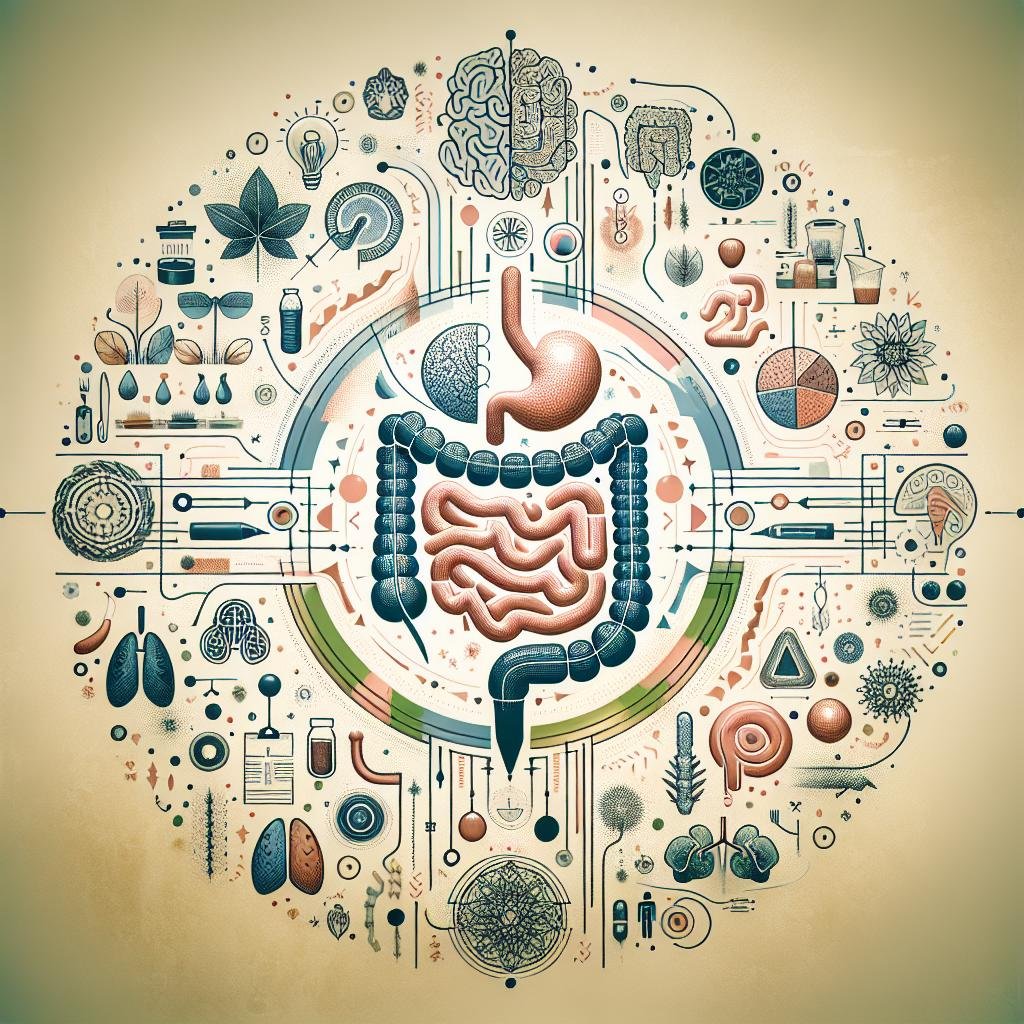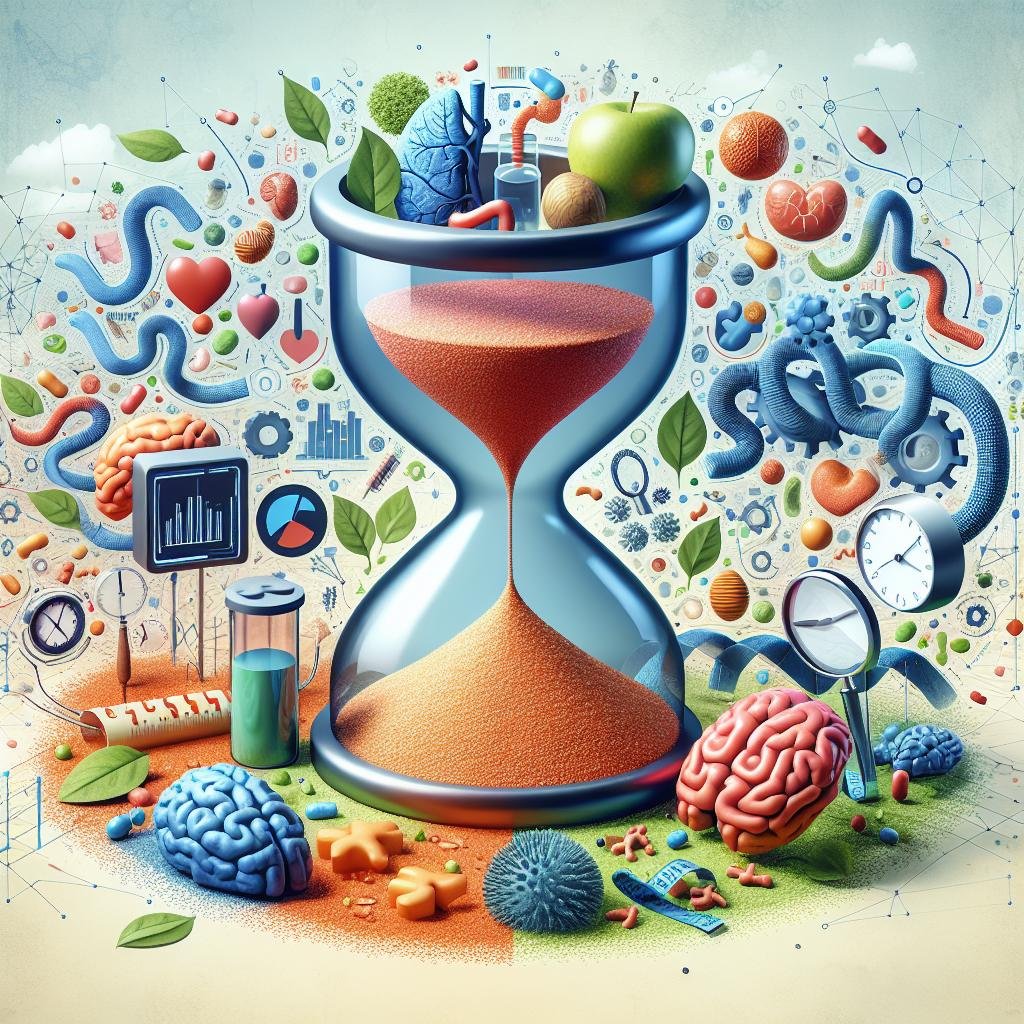In a world increasingly captivated by wellness trends, intermittent fasting has emerged as a powerful player, capturing the attention of health enthusiasts and casual dieters alike. But beyond its potential for weight management and metabolic benefits lies a less explored territory: its profound impact on digestion and gut health. As we delve into the nuanced relationship between fasting and our digestive systems, we’ll uncover how cycles of eating and abstaining might not only reshape our waistlines but also influence the intricate ecosystem of bacteria that reside in our guts. Join us on this journey to explore the science and sensation behind intermittent fasting, and discover how it may serve as a catalyst for a healthier, more harmonious digestive experience.
Exploring the Science Behind Intermittent Fasting and Its Impact on Gut Microbiome Diversity
The intricate relationship between fasting and the human gut microbiome has garnered significant attention from researchers and health enthusiasts alike. Intermittent fasting, characterized by alternating cycles of eating and fasting, may promote beneficial changes in the microbial community within the digestive tract. This process can result in a diverse array of gut bacteria, which plays a crucial role in promoting overall health and well-being.Key mechanisms by which fasting can foster these changes include the modulation of metabolic pathways, reduction of inflammation, and enhancement of autophagy – the body’s way of cleaning out damaged cells and regenerating new ones.Studies suggest that the increased diversity of gut bacteria during fasting periods may help improve nutrient absorption and bolster immune function.
Notably, certain species of gut bacteria thrive when subjected to intermittent fasting. As an example, beneficial bacteria such as Lactobacillus and Bifidobacterium have been found to flourish during fasting periods, leading to an enriched microbiome. Conversely, populations of harmful bacteria, which can contribute to gut dysbiosis and various metabolic disorders, tend to decline.Below is a summary of how intermittent fasting impacts different aspects of gut health:
| Aspect | Impact |
|---|---|
| Microbial Diversity | Increased among beneficial species |
| Inflammation Levels | Decreased, promoting a healthier gut |
| Nutrient absorption | Enhanced through improved microbial balance |
| Metabolic Health | Potentially improved through better insulin sensitivity |

Understanding the Role of Fasting Windows in Digestive Efficiency and Nutrient Absorption
Fasting windows play a crucial role in enhancing digestive efficiency and improving nutrient absorption. By restricting food intake to specific periods, the digestive system is given a chance to rest and rejuvenate. This periodic fasting can lead to several physiological changes that optimize digestion. During the fasting phase, the body shifts its focus towards repairing and rebuilding gut lining and can increase the production of digestive enzymes once feeding resumes. As a result, meals consumed during these windows can be processed more effectively, allowing for higher nutrient uptake compared to constant grazing.
Moreover,intermittent fasting has been linked to a more favorable gut microbiome composition. A balanced microbiome promotes better digestive health and further enhances the absorption of nutrients. Some of the key benefits observed include:
- Reduction in digestive discomfort: Less frequent eating can diminish bloating and gas.
- Improved gut motility: Fasting may regulate bowel movements and improve overall gut transit time.
- Enhanced metabolic adaptability: The body becomes more adept at switching between burning glucose and fat for energy, leading to more efficient nutrient use.

The Link Between Intermittent Fasting and Gut Health: Benefits and potential Drawbacks
Intermittent fasting (IF) presents an intriguing approach to eating that has been associated with various benefits for both gut health and digestion. When individuals practice intermittent fasting,they often experience improved gut microbiome diversity,which is essential for maintaining overall digestive health. Studies suggest that the fasting periods give the gut time to reset, allowing beneficial bacteria to flourish while harmful bacteria may decline. This shift can lead to enhanced nutrient absorption and a reduction in inflammation, providing a foundation for a healthier digestive ecosystem. moreover, the periods of fasting encourage the gut to engage in processes like autophagy, where damaged cells are cleared out, contributing to a more efficient digestive system.
Though, intermittently restricting food intake might not be suitable for everyone and can present potential drawbacks. Some individuals may find it challenging to adapt to these eating patterns, leading to digestive discomfort such as bloating or indigestion. Additionally, inconsistent eating habits may exacerbate existing gastrointestinal issues for some, including those with conditions like IBS or GERD. Here’s a brief overview of the benefits and potential drawbacks:
| benefits | Potential Drawbacks |
|---|---|
| Improved gut microbiome diversity | Possible digestive discomfort |
| Enhances nutrient absorption | Increased hunger levels |
| Reduces inflammation | may not suit those with gastrointestinal disorders |

Practical Recommendations for Implementing Intermittent Fasting to Support Digestive Wellness
Implementing intermittent fasting (IF) can be an effective strategy for enhancing digestive wellness, and there are practical steps to start this journey. First and foremost, it’s crucial to choose a fasting schedule that fits your lifestyle—be it the popular 16/8 method, where you fast for 16 hours and eat during an 8-hour window, or a 5:2 approach. Listen to your body and experiment with different time frames to discover what feels best.During eating periods, focus on nutrient-dense foods that are rich in fiber, such as fruits, vegetables, and whole grains, which can aid digestion and promote a healthy gut microbiome.
Another key aspect to consider is staying hydrated throughout the fasting cycle. Water not only helps foster digestion but also aids in detoxification processes. Incorporating herbal teas or bone broths during the fasting window can add flavor without breaking the fast.Additionally, paying attention to meal composition is crucial. When breaking your fast, opt for easily digestible foods, such as yogurts or smoothies, to prevent overwhelming your system. Below is a simple guide to transitioning into intermittent fasting for digestive health:
| Day | Meal Suggestions | Hydration Tips |
|---|---|---|
| Day 1 | Oatmeal with fruits | Drink 2L water |
| Day 2 | Grilled chicken with vegetables | Herbal tea during fasting |
| Day 3 | Quinoa salad with legumes | Bone broth during fasting |
Insights and Conclusions
the rabbit hole of intermittent fasting reveals a complex interplay between time, dietary patterns, and our digestive health. As research continues to unfold, it becomes increasingly clear that this approach to eating can offer profound benefits for gut health, from promoting beneficial gut bacteria to enhancing digestive efficiency. Though, it is indeed essential to remember that each person’s body is unique, and what works wonders for one may not yield the same results for another. As you navigate your own relationship with food and digestion, consider blending the insights gleaned from intermittent fasting with your personal health goals and lifestyle. Ultimately, the journey to optimal gut health is not a one-size-fits-all endeavor but rather a personal exploration—an invitation to listen to your body and discover what truly nourishes you.

